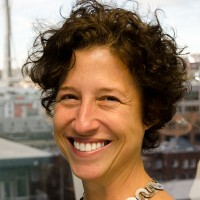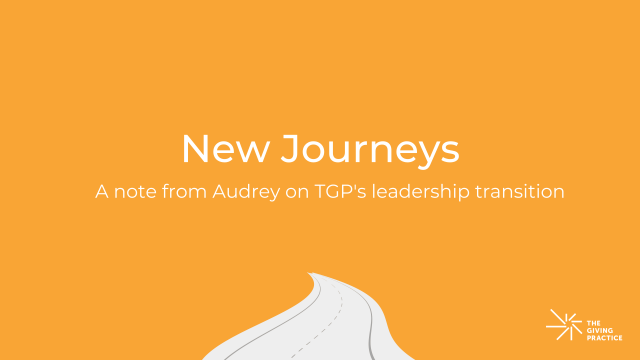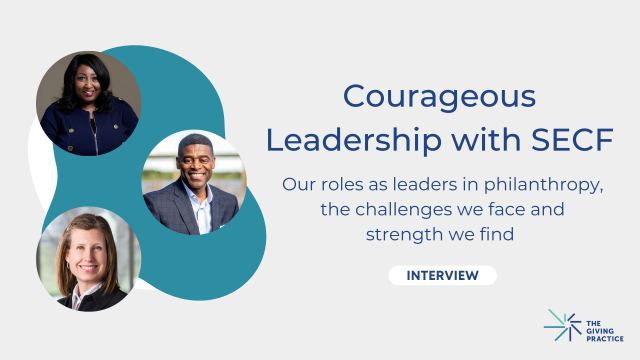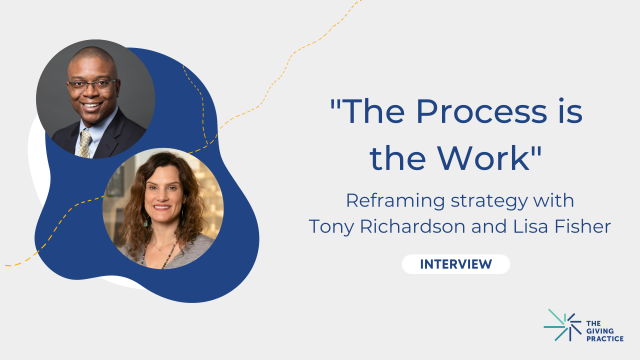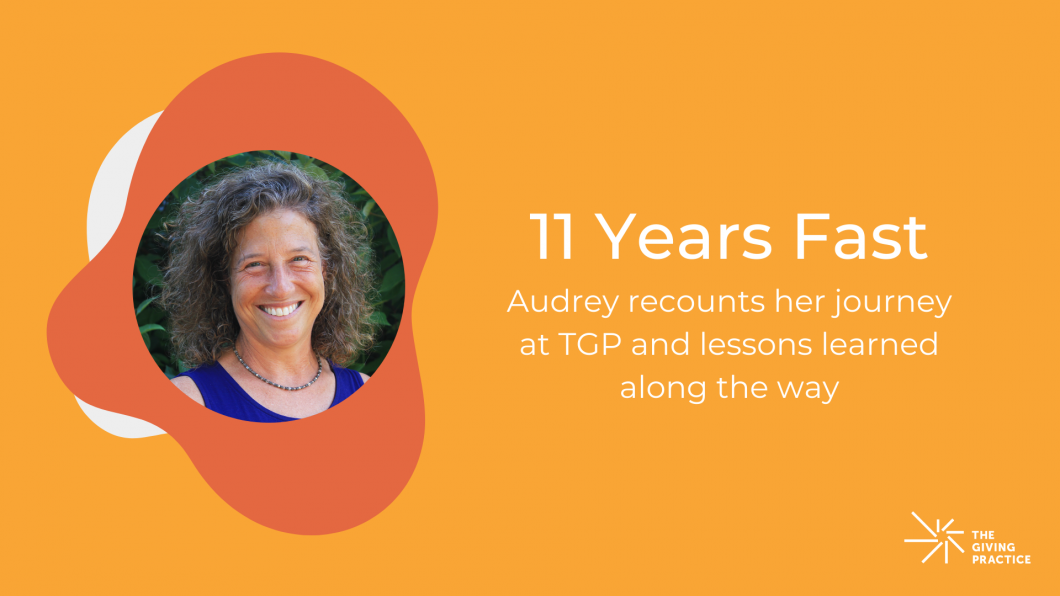
In 2011, when I was invited by Philanthropy Northwest (PNW) to design the next version of The Giving Practice (TGP), I couldn’t imagine why they’d want me. Honestly, I was a little cynical about the field of philanthropy. At the time, I noticed how some of my philanthropy peers would avoid spaces where they might get solicited by non-profits; I was concerned by how burdensome foundations made it for potential grantees to apply for funding; I was frustrated that we as a field weren’t thinking enough about systems change and instead funded the symptoms of systemic inequities.
And yet, this was the very reason why this role made so much sense. Perhaps a consulting practice committed to addressing the issues that hold philanthropy back from fulfilling its potential could make a difference. It was a solid bet PNW was making and I wanted in.
And it has been a great journey. I have learned so much here, and I’m grateful for my TGP colleagues, many of whom have been here since the beginning and have helped shape the practice we are today.
Together, we took note of the power of authentic leadership. We saw that leaders who brought self-awareness, vulnerability and courage to the table were most successful in guiding their organizations to be different. They were bold and unafraid of making mistakes. We also saw that creating sustainable change went beyond authentic leadership. It had to include organizational culture too, but leaders couldn’t do this work alone.
So we worked to design a consulting approach that would help our clients tap into their organizational cultures, and adapt as their organizations adapt – as they do. We helped develop strategic frameworks rather than strategic plans. Investment commandments rather than investment policy statements. We adopted a model for exploring diversity, equity and inclusion with our clients that works fluidly across the personal, interpersonal, organizational and systemic levels involved in this work. And as our client base grew, we saw the need for a space where individual leaders trying to transform the field could come together and share their challenges, successes and lessons learned. So we developed our peer learning cohorts which are now approaching their 10th consecutive year of running.
Over time, as TGP began growing and expanding our geographic footprint beyond the Northwest (it is hard to believe we have grown to support over 100 foundations each year) we continued to highlight the intersection of leadership, culture and strategy. We became more confident and articulate in our point of view that we would only be successful if we listened as much as, or even more than, we talked; if we fostered the belief that communities know what they need; that addressing racial and other inequities — uncomfortable for some, a relief for others — was necessary. We knew we were doing our best work as a consulting practice when we helped people be their best selves and helped clients create a workplace culture where everyone can flourish. To the outside, philanthropy looks easy, but we recognize that despite the privileges we have working in this field, the work is hard and needs to be infused with love, community, joy and laughter.
I describe this journey as part of my goodbye letter because this work with my TGP team and clients also helped me see my own strengths and weakness as a leader. It has been such a gift to have honest and open conversations with so many people in our field. And that is one important lesson I take with me: we need to create spaces that help each of us bring all of our strengths to our work, and also help us see our challenges. If you create a culture where there is room for growth and mistakes, we can learn from them and improve. That’s transformative work. And yet, it is so uncomfortable to share the stories where we show our vulnerability. “Reflective Practices” has been our attempt to instill these same kinds of intimate conversations we have with each other at TGP with leaders in all of our work.
I have been transformed by this job because I have learned so much alongside clients and our team. And of course, I could not resist reminding you that what we’ve learned together is not only online in our blogs and resources, but also in our processes and in our people.
I am eternally grateful to everyone who has made my experience at TGP and PNW so incredible: the current and past members of TGP, the PNW staff and board, clients, colleagues, peers, friends. I feel fortunate to have built so many deep friendships and relationships over the last decade. I want to give special thanks to: Sindhu Knotz, who has been with TGP since 2012 and co-leading with me over the last few years. She has brought so much expertise and vision to TGP and we would not be where we are today without her leadership; Ted Lord who founded TGP in 2000 via a grant from the Ford Foundation, and returned in 2011 to help design the next version; our incredible leadership team Dawn Chirwa, Lisa Fisher and Mark Sedway who have been thoughtful advisors, committed practitioners and the glue that every team needs. I am grateful to Aya Tsuruta, who helped me through many iterations of this note.
Thank you all.
Join our mailing list to stay up to date on our latest reflections, insights, interviews and more.
